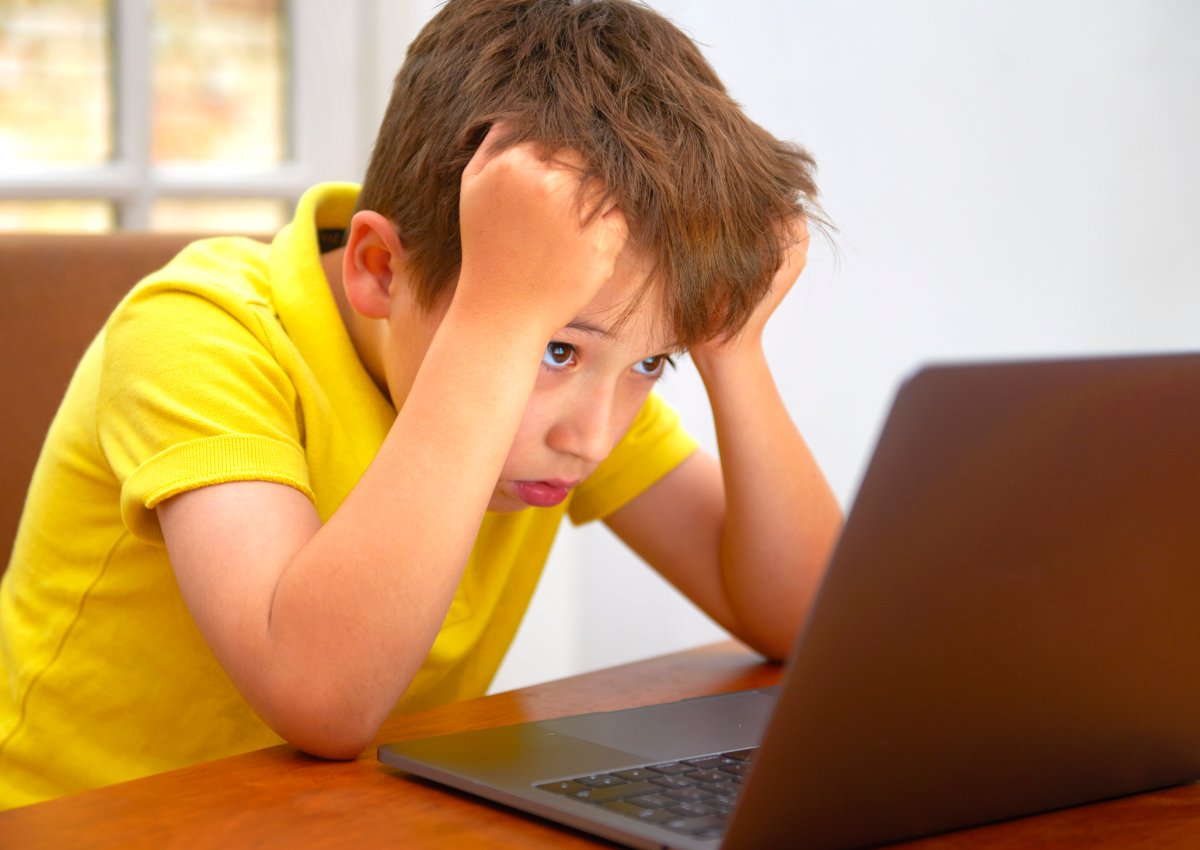Manitoba school divisions say they are working on plans to address student learning gaps in literacy and numeracy skills brought on from a shift in education during the COVID-19 pandemic.

“It’s definitely a concern,” Seven Oaks Superintendent Brian O’Leary told Global News. “The frequent disruptions and remote learning affected children beginning school the most.”
O’Leary said his division will be applying most of its additional COVID-19 funding to lowering class sizes and adding supports for students in grades 1-3 where they saw the biggest learning gaps.
“We’re also adding some additional supports for high school students who fell behind in credit attainment.”
The Louis Riel School Division said despite the disruption to in-class learning in spring 2020 and the number of students identified as needing recovery learning, the division has seen stable or slight improvements in almost all areas measured in grades 1 to 8.

However, it did find some children’s French literacy dropped.
“One important area of focus where we have seen a slight decline over the last two years is reading and writing in French amongst our French Immersion students (despite stable achievement in reading and writing in English),” Communications Manager Taylor Fenn said.
The province said it has allocated $58 million in new funding for the 2021/22 school year to ensure continued pandemic protection for schools and address the learning impacts on student learning.
“These funds are to be used for summer programming, intensive literacy and numeracy supports in early years, language acquisition, planning and assessment, professional learning, mental health and wellness, and engagement/attendance,” a spokesperson said.
The province also said $5 million was provided to divisions to be used to assess and address learning impacts.
“There is no one-size-fits-all recovery learning program or package,” they added. “Divisions will be asked to submit plans, including how the remaining safe schools funds will be used to address learning impacts.”
For more than a decade, Pembina Trails School Division has used its Compass for Success program to assess students’ progress.
“It’s a robust software program that allows us to take all the student report cards and do some deep dive and studies and trends and see how our kids are doing based on teacher judgment or student progress in each of the years,” Superintendent Ted Fransen said.
Fransen said it has helped his teachers and the division to see where some students may need extra help because of learning losses over the pandemic.
“There are certainly learning gaps in terms of the curriculum,” Fransen said. “We have found that students who do have parents at home during the learning from home phase did better than many of the kids who didn’t have that kind of intimate support in coaching at home.”

Pembina Trails has already hired four more instructional coaches, two in both literacy and numeracy, to focus on helping some students catch up.
But Fransen said one major issue the pandemic has highlighted is the discrepancies and disadvantages some students have to overcome.
“(It includes) students in EAL, students in poverty, students who are Indigenous and so we have to put extra effort and resources into those communities… and we are.”
He said COVID has shone a bright light on the inequity across Winnipeg.
“With respect to the number of devices in our home, our kids sharing them, the speed of internet,” he said. “The speed of internet in a home is is is about money. And when you’re going to make a choice between groceries and food on the table, or the fastest internet speed, parents choose food on the table.”
The same is being found not just around the province but around the world through multiple studies looking into children’s learning loss during the pandemic.
“In the Netherlands, they looked at pre and post test scores and they found that, in fact, the gap is at least six months (and) could be as large as one-fifth of the school year and that gap is even larger with marginalized populations,” early learning education professor and researcher at the University of Winnipeg, Sheri-Lynn Skwarchuk said.
Skwarchuk said making sure students catch up is a concern because those who continue to fall behind could face worse outcomes in the future.
“From a research perspective, children who are further behind their peers have trouble catching up and long term, especially in early literacy and numeracy research, we know that those kids are going to have further problems finishing school,” she said.
However, she said parents shouldn’t worry too much about the learning losses from the past two years because it is not too late to address the issues.
“These learning loss issues are worldwide. So everybody’s dealing with this as opposed to one specific region.”
“So we just have to make sure that we buckle up and we make sure that we provide a good quality education for all of the children in our province.”

While there may have been a decline in traditional learning, many said students adapted and learned new life skills while doing remote schooling.
“They were also probably helping mum or dad or their caregivers do dishes, laundry,” Fransen said. “They learn to balance to be successful at school. They learn to be successful at home in helping with the home life, and they also learn to rise above the negativity.”
While the focus for many will be on getting children caught up this school year, Skwarchuk also warned parents to enjoy the last few days before school and to try to not pass on any anxious energy they may have to their kids.
- Canadian man dies during Texas Ironman event. His widow wants answers as to why
- On the ‘frontline’: Toronto-area residents hiring security firms to fight auto theft
- Honda’s $15B Ontario EV plant marks ‘historic day,’ Trudeau says
- Canadians more likely to eat food past best-before date. What are the risks?








Comments